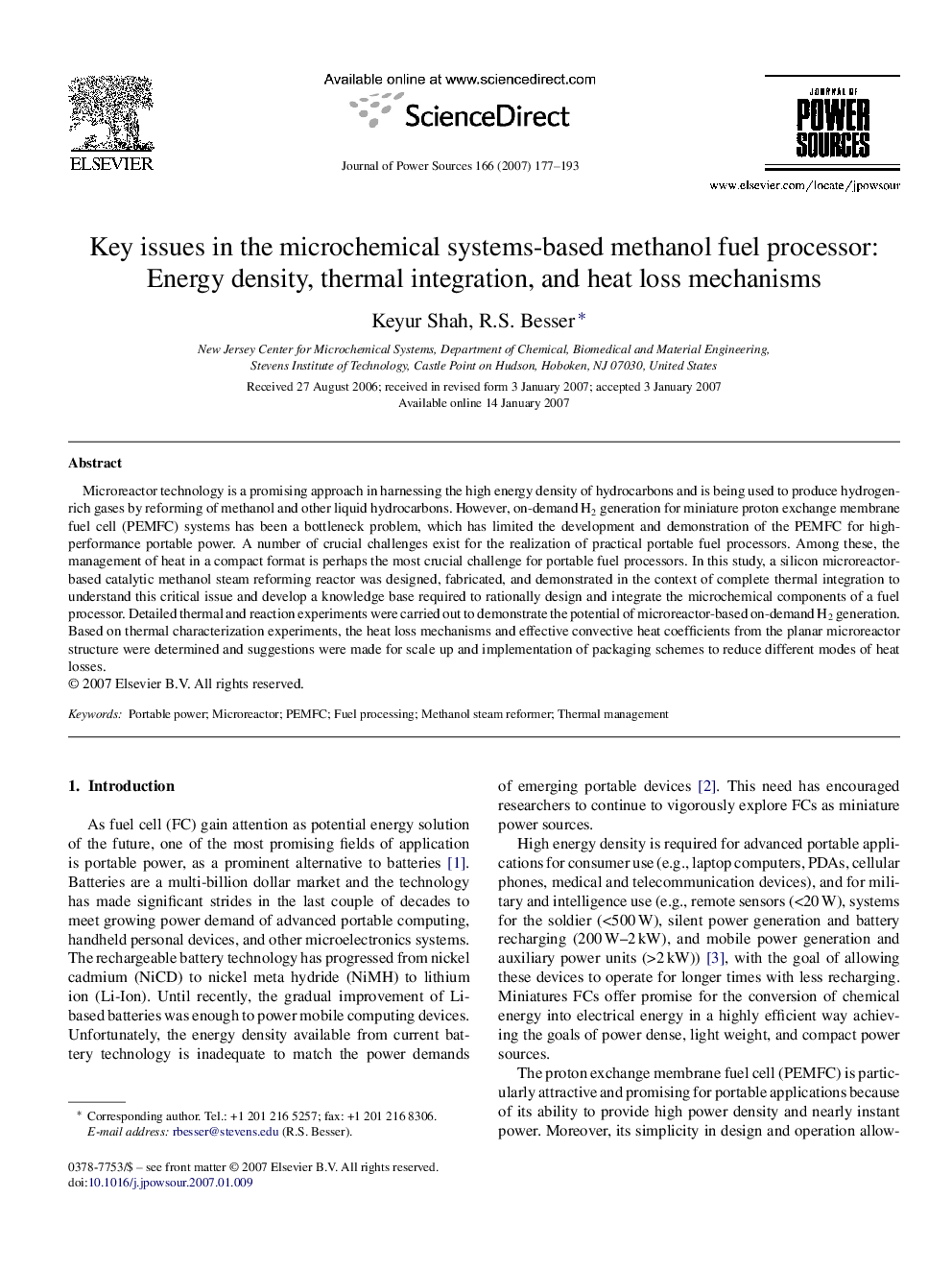| Article ID | Journal | Published Year | Pages | File Type |
|---|---|---|---|---|
| 1290931 | Journal of Power Sources | 2007 | 17 Pages |
Microreactor technology is a promising approach in harnessing the high energy density of hydrocarbons and is being used to produce hydrogen-rich gases by reforming of methanol and other liquid hydrocarbons. However, on-demand H2 generation for miniature proton exchange membrane fuel cell (PEMFC) systems has been a bottleneck problem, which has limited the development and demonstration of the PEMFC for high-performance portable power. A number of crucial challenges exist for the realization of practical portable fuel processors. Among these, the management of heat in a compact format is perhaps the most crucial challenge for portable fuel processors. In this study, a silicon microreactor-based catalytic methanol steam reforming reactor was designed, fabricated, and demonstrated in the context of complete thermal integration to understand this critical issue and develop a knowledge base required to rationally design and integrate the microchemical components of a fuel processor. Detailed thermal and reaction experiments were carried out to demonstrate the potential of microreactor-based on-demand H2 generation. Based on thermal characterization experiments, the heat loss mechanisms and effective convective heat coefficients from the planar microreactor structure were determined and suggestions were made for scale up and implementation of packaging schemes to reduce different modes of heat losses.
